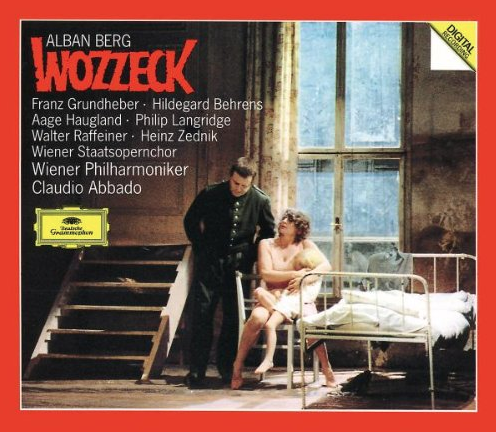Wozzeck, Alban Berg's first opera, is the ultimate representation of
German Expressionism. The lurid libretto, based on a fragmentary play by
Georg Büchner, tells the tragic tale of impoverished soldier Franz
Wozzeck, his unfaithful girlfriend Marie, and their illegitimate child.
Each scene is extremely concise and the story progresses with the sure
swiftness of a nightmare. Berg's music is gnarled, acrid, and sometimes
violent, expressing the ghastliness of Wozzeck's pathetic existence. But
shock value isn't the only thing on the composer's mind. For one thing,
every scene is written in a different strict classical form
(passacaglia, sonata, rondo, invention), so there's a strong sense of
structure as well as plenty of musical variety. For another, Berg adds
glimmers of tonality and abundant lyricism to the dissonant and knotted
score, emphasizing the story's pathos. Despite its horrific aspects,
Wozzeck is a very moving, very human tragedy. This electrifying
performance led by Claudio Abbado -- recorded during live performances
at the Vienna State Opera in 1987 -- conveys the music's brutality and
poignancy with equal force. Hildegard Behrens is an unusually
sympathetic Marie, and Franz Grundheber makes Wozzeck's strange neuroses
seem almost ordinary, a portrayal that's all the more harrowing for its
believability. There's a bit of audience noise, but the
up-close-and-personal recording has tremendous impact. (Andrew Farach-Colton)
Suscribirse a:
Enviar comentarios (Atom)





No hay comentarios:
Publicar un comentario